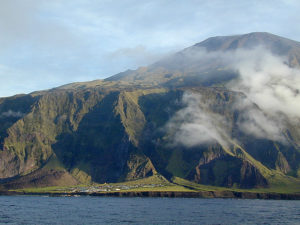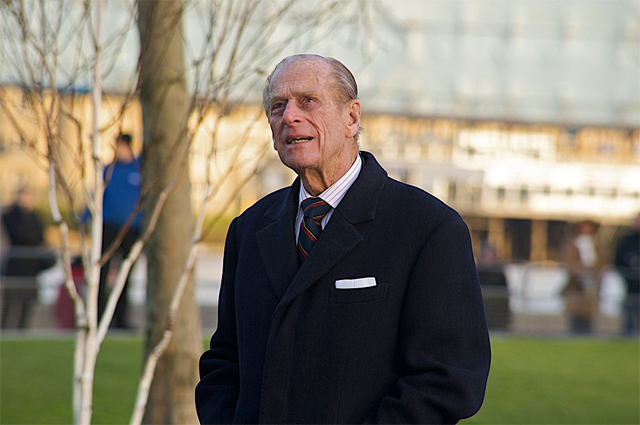Last week the Tristan Islanders marked the bicentenary of British rule over the island by having a variety of festivities and by reading a letter from H.R.H. Prince Philip. The history is important to the Islanders.

During the Napoleonic Wars (called the War of 1812 in the U.S.), American privateers had used Tristan as a base of operations against British shipping in the South Atlantic. The British Governor of the Cape Colony, Lord Charles Somerset, proposed to Lord Bathurst, the Secretary of State, that the British should preemptively take possession of the island. In September of 1815, with Napoleon being imprisoned on Saint Helena, the British feared that Tristan da Cunha might become a French base for liberating the Emperor, so Lord Bathurst issued an order that a garrison should be established on Tristan. On August 14th, 1816, the H.M.S. Falmouth brought the first garrison into Tristan waters. They landed at a level area that had already been used intermittently by settlers. It was the only spot on the island suitable for a small settlement. The level area, known locally as “The Settlement,” remains the only permanently inhabited place on the island.
Captain Festing from the Falmouth went ashore on August 14th and took formal possession of the island in the name of King George III. The sole survivor of an earlier settlement and his young companion expressed pleasure at becoming residents of the British Empire.
On Tristan last week, the Islanders celebrated by holding a barbecue at Prince Philip Hall and by organizing games for the children. The cornerstone of the hall was laid by Prince Philip during his visit to the island on the Royal Yacht Britannia on January 17, 1957. The building remains the social hub of the community.

Prince Philip, who is now 95, sent a gracious letter to be read at the celebration of the bicentennial. He wrote how well he remembers his visit, and that he has followed activities on the island ever since. “I wish the whole Tristan community a very happy future,” he wrote.
In many ways, the more important phase of the early history of Tristan began 15 months after the first troops arrived, in November 1817, when the military garrison was withdrawn, leaving behind, at their own request, a British seaman named William Glass and a couple companions. They had gotten permission to stay and establish a permanent civilian settlement. The importance of Glass is that he was committed to creating a social experiment based on the Enlightenment ideals of his time.
According to Munch (1964), the small community, which to this day only numbers about 270 people, was founded on the principles of absolute equality, communal ownership of property, and the absence of any governmental control. The major principle that the early settlers agreed on was that of anarchy.
The early settlers wrote a document to codify their peaceful ideals, which stated, in part: ‘That in order to ensure the harmony of the Firm, No member shall assume any superiority whatever, but all to be considered as equal in every respect…’ The existence of the document was soon forgotten and the commitment to communal ownership was abandoned, but the principles of anarchy and equality became the dominant values for the community.
It will be interesting to join Prince Philip in following activities on the island over the next year and a half to see how the Islanders commemorate their significant contributions to world culture: a successful, idealistic, society that has changed and adapted for 200 years but that continues to exemplify many of the peaceful values that nurtured it during its formative years.